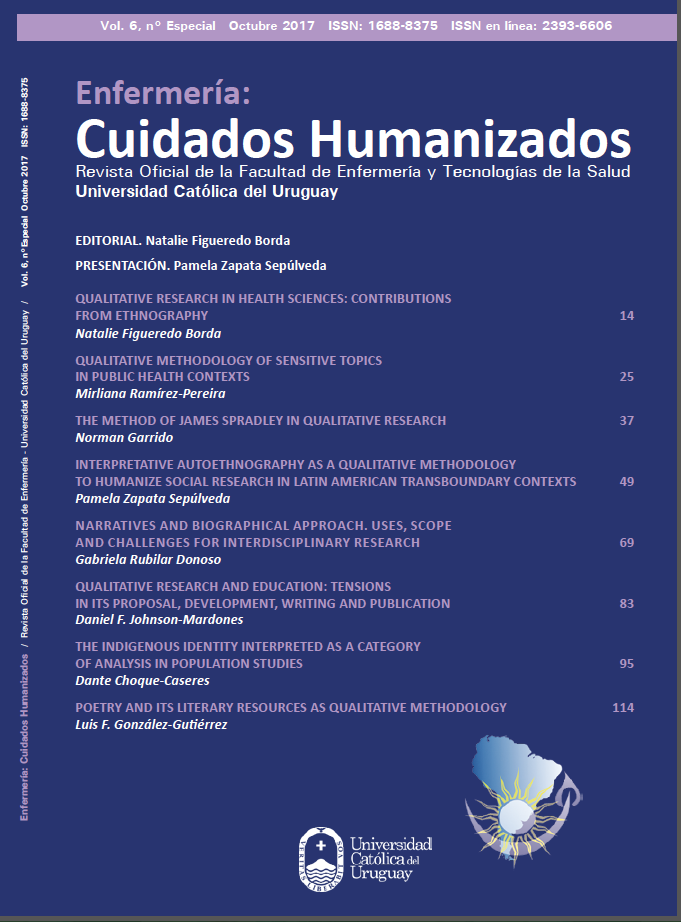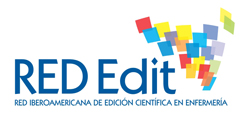THE INDIGENOUS IDENTITY INTERPRETED AS A CATEGORY OF ANALYSIS IN POPULATION STUDIES
DOI:
https://doi.org/10.22235/ech.v6iEspecial.1457Keywords:
Indigenous, Identity, CensusAbstract
In Latin America, based on the recognition of Indigenous Peoples, the identification of gaps or disparities between the Indigenous and non-Indigenous population has emerged as a new research interest. To this end, capturing Indigenous identity is key to conducting certain analyses. However, the social contexts where the identity of Indigenous persons are (re)produced has been significantly altered. These changes are generated by the assimilation or integration of Indigenous communities into dominant national cultures. Within this context, limitations emerge in the use of this category, since Indigenous identity has a political and legal component related to the needs of the government. Therefore, critical thought on the use of Indigenous identity is necessary in an epistemological and methodological approach to research. This article argues that research about Indigenous Peoples should evaluate how Indigenous identity is included, for it is socially co-produced through the interaction of the State and its institutions. Thus, it would not necessarily constitute an explicative variable. By analyzing the discourse about Aymara Indigenous communities that has emerged in the northern border of Chile, this paper seeks to expose the logic used to define identity. Therefore, I conclude that the process of self-identification arises in supposed Indigenous people, built and/or reinforced by institutions, which should be reviewed from a decolonizing perspective and included in comparative research.
Downloads
References
(2) Jäger S. Discourse and Knowledge: Theoretical and Methodological Aspects of A Critical Discourse and Dispositive Analysis. En: Wodak R, Meyer M, editores. Methods of Critical Discourse Analysis. 1ra. edición. London; Thousand Oaks,CA; New Delhi: SAGE Publications, Ltd; 2001. p. 32-62.
(3) Ovens A. Personal Politics and Identity in Student Teachers’ Stories of Learning to Teach. En: Mattos AMA, editor. Narratives on Teaching and Teacher Education: An International Perspective. New York, NY: Palgrave Macmillan; 2009. p. 65-76.
(4) Hansen L. Security as Practice: Discourse Analysis and the Bosnian War. New York, NY; London: Routledge; 2006.
(5) Loveman M. National colors: Racial classification and the state in Latin America. New York, NY: Oxford University Press; 2014.
(6) Short D, Lennox C. Handbook of Indigenous Peoples' Rights. Florence: Routledge; 2016.
(7) Van Kessel J. Los aymaras bajo el régimen militar de Pinochet (1973-1990). En: Van Kessel J, editor. Holocausto al Progreso: Los Aymará de Tarapacá. 4ta edición. Iquique: Instituto para el Estudio de la Cultura y Tecnología Andina, IECTA; 2003. p. 259-300.
(8) Axelsson P, Sköld P. Indigenous Peoples and Demography. The Complex Relation between Identity and Statistics. New York, NY: Berghahn Books; 2011.
(9) Corntassel J. Who is indigenous? ‘Peoplehood’ and ethnonationalist approaches to rearticulating indigenous identity. Nationalism and Ethnic Politics. 2003;9(1):75-100.
(10) Díaz Araya A. Aymaras, peruanos y chilenos en los Andes ariqueños: Resistencia y conflicto frente a la chilenización del norte de Chile. AIBR, Revista de Antropología Iberoamericana. 2006;1(2):296-310.
(11) Van Kessel J. Los aymaras contemporáneos de Chile. En: Hidalgo L. J, Schiappacasse F. V, Niemeyer F. H, Aldunate Del S. C, Mege R. P, editores. Etnografía: Sociedades indígenas contemporáneas y su ideología. Santiago: Andrés Bello; 1996. p. 47-67.
(12) Galdames Rosas L, Ruz Zagal R. La Junta de Adelanto de Arica y John V. Murra. Dos lecturas sobre el Desarrollo Andino en el Norte de Chile. Chungará: Revista de Antropología Chilena. 2010;42(1):257-70.
(13) Gundermann K. H. Procesos étnicos y cultura en los Pueblos Indígenas de Chile. Alpha. 2013(36):93-108.
(14) Angosto-Ferrández LF, Krodolfer S. Race, Ethnicity and National Censuses in Latin American States: Comparative Perspectives. En: Angosto-Ferrández LF, Krodolfer S, editores. Everlasting Countdowns : Race, Ethnicity and National Censuses in Latin American States. Newcastle: Cambridge Scholars Publishing; 2012. p. 1-40.
(15) Bravo D, Larrañaga O, Millán I, Ruiz M, Zamorano F. Informe Final Comisión Externa Revisora del Censo 2012. Santiago: Instituto Nacional de Estadísticas; 2013.
(16) Bianchini R, Feeney G, Singh R. Metodología de trabajo, conclusiones y recomendaciones del informa de la comisión internacional para el Censo de Población y Vivienda 2012. Santiago: Instituto Nacional de Estadísticas; 2013.
(17) Gundermann K. H, Vergara del S. JI, Foerster G. R. Contar a los indígenas en Chile: Autoadscripción étnica en la experiencia censal de 1992 y 2002. Estudios Atacameños. 2005;30:91-113.
(18) Comité de Desarrollo del Interior. Esquema para una programacion de Desarrollo del Interior del Departamento. Arica: Autor; 1974.
(19) Gobierno de Chile. Informe Comisión Verdad Histórica y Nuevo Trato con los Pueblos Indígenas. Santiago: Autor; 2003.
(20) Noriega Zegarra L. Mujeres indígenas apoyan gestión de Directora regional de CONADI. El Morrocotudo [Internet] 2011 Agosto 24 [Acceso el 1 Junio 2017]. Disponible en: http://www.elmorrocotudo.cl/noticia/sociedad/mujeres-indigenas-apoyan-gestion-de-directora-regional-de-conadi.
(21) Gobierno Regional de Arica y Parinacota. Globos gigantes con helio darán vida a Carnaval Navideño de Arica [Internet]. Arica:Autor; 2016 [Acceso el 1 Junio 2017]. Disponible en: https://gorearicayparinacota.cl/index.php/noticias/564-globos-gigantes-con-helio-daran-vida-a-carnaval-navideno-de-arica.
(22) Instituto Nacional de Estadísticas. Estadíticas Sociales de los Pueblos Indígenas en Chile - Censo 2002. Santiago: Autor; 2005.
(23) Rivara FP, Finberg L. Use of the terms race and ethnicity. Archives of Pediatrics & Adolescent Medicine. 2001;155(2):119.
(24) Caqueo-Urízar A, De Munter K, Urzúa A, Saiz JL. Entre lo Aymara y lo Chileno: Escala de Involucramiento en la Cultura Aymara (EICA). Una aproximación interdisciplinar a la dimensión Aymara en la vivencia intercultural de estudiantes de enseñanza básica del norte de Chile. Chungará: Revista de Antropología Chilena. 2014;46(3):423-35.
(25) Caqueo-Urízar A, Urzúa A, De Munter K. Mental health of indigenous school children in Northern Chile. BMC Psychiatry. 2014;14(1):11.
(26) Droguett FF, Droguett RF. El tinku como expresión política: Contribuciones hacia una ciudadanía activista en Santiago de Chile. Psicoperspectivas. 2015;14(2):62-71.
(27) Winker MA. Measuring race and ethnicity: Why and how? JAMA. 2004;292(13):1612-4.
(28) Ministerio de Salud. Situación de Salud de la Población Aymara en la región de Arica y Parinacota. Evidencias de inequidades étnicas en el norte de Chile. Arica: Autor; 2014.
(29) Pedrero M-m, Oyarce AM. Una Metodología Innovadora para la caracterización de la situación de salud de las poblaciones indígenas de Chile: Limitaciones y potencialidades. En: Centro Latinoamericano y Caribeño de Demografía (CELADE), editor. Notas de Población Nro 89. Santiago: Publicaciones de las Naciones Unidas; 2009. p. 119-45.
(30) Permanent Forum on Indigenous Issues. Report on the Fourth Session (16-27 May 2005). New York, NY: UN Economic and Social Council; 2005.
(31) Kaplan JB, Bennett T. Use of race and ethnicity in biomedical publication. JAMA. 2003;289(20):2709-16.
(32) Madden R, Axelsson P, Kukutai T, Griffiths K, Mienna CS, Brown N. Statistics on Indigenous Peoples: International Effort Needed. Statistical Journal of the IAOS. 2016;32(1):37-41.
(33) Vukic A, Gregory D, Martin-Misener R, Vukic A, Gregory D, Martin-Misener R. Indigenous Health Research: Theoretical and Methodological Perspectives. Canadian Journal of Nursing Research. 2012;44(2):146-61.
(34) Rogers Stanton C. Crossing Methodological Borders. Decolonizing Community-Based Participatory Research. Qualitative Inquiry. 2014;20(5):573-83.
(35) Tuhiwai Smith L. Decolonizing Methodologies. Research and Indigenous Peoples. Second ed. New York, NY; London: Zed Books; 2012.
(36) Romero-Toledo H, Castro F. Una Lectura actual de la geografía de los Aymara en el Norte Grande. 2017.
Downloads
Published
How to Cite
Issue
Section
License
Copyright (c) 2017 Enfermería: Cuidados Humanizados

This work is licensed under a Creative Commons Attribution 4.0 International License.

















